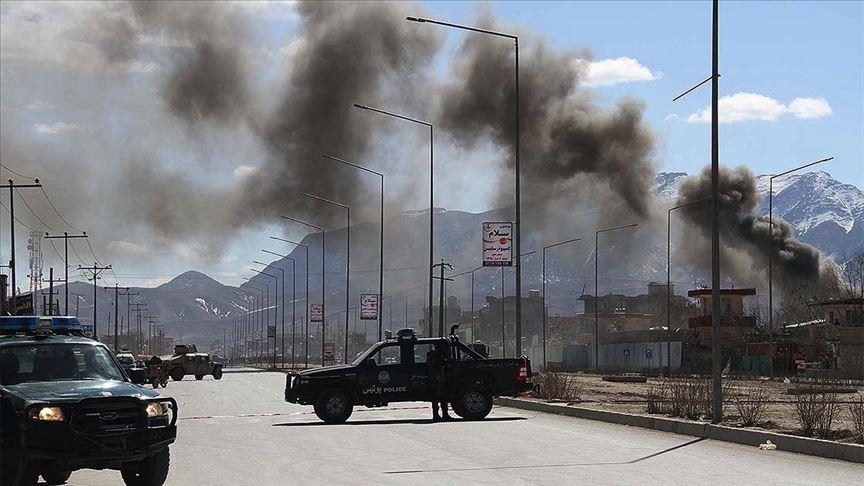Taliban's battle-focused strategy casts doubt on their legitimacy, says UN
Afghan president says massive influx of transnational terrorist networks giving war new regional, international dimensions
 FILE PHOTO
FILE PHOTO
KABUL, Afghanistan
The UN Wednesday said the Taliban's battle-focused strategy cast doubt on the legitimacy they had earned in recent years through negotiations in Doha, adding the world is watching closely how they are acting.
At a Joint Coordination and Monitoring Board (JCMB) meeting, also attended by Afghan President Ashraf Ghani, Chief of the UN Assistance Mission in Afghanistan, Deborah Lyons, said if there is no movement at the negotiating table, the Taliban will not be seen as a “viable partner” for the international community.
“With the territory they have taken, the Taliban have inherited responsibilities. The world is watching closely how they are acting, especially towards civilian populations, women, and minorities,” she said in a reference to the nearly 200 districts overrun by the Taliban since US President Joe Biden announced the departure plan for the American forces in April.
“Under the values of any civilization, not least that of Islam, the impending crisis – humanitarian crisis, drought, COVID-19, food insecurity, displacement, -- any dimension of this impending crisis should be a cause for unity, peace, and sister and brotherhood,” she said, adding 18 million Afghans are facing dire humanitarian needs.
Lyons, who is also the UN Secretary-General’s Special Representative for Afghanistan, said the Taliban were responsible for more civilian casualties than any other waring party.
Concern over rising casualties
The UN in Afghanistan has documented 5,183 civilian casualties, 783 killed and 1,609 injured, in the first half of this year, a 47% increase compared with the same period in 2020.
In its mid-year report, the UN Assistance Mission in Afghanistan expressed serious concerns over the rising number of civilians killed and injured.
However, hours after the UN report was published, the Taliban on Tuesday rejected its findings.
Addressing the JCMB meeting, the Afghan president called on the international community to review the narrative of the willingness of the Taliban and their supporters on embracing a political solution.
“A massive influx of transnational terrorist networks, particularly Jaish-i-Muhammed, Lashkar-i-Tayaba and Daish, is giving the war new regional and international dimensions. Planting of carpet mining, car bombs, suicide bombing, summary executions, revenge killings, and forced marriages constitute a recurrent pattern of violations of human rights,” said Ghani.
Anadolu Agency website contains only a portion of the news stories offered to subscribers in the AA News Broadcasting System (HAS), and in summarized form. Please contact us for subscription options.







